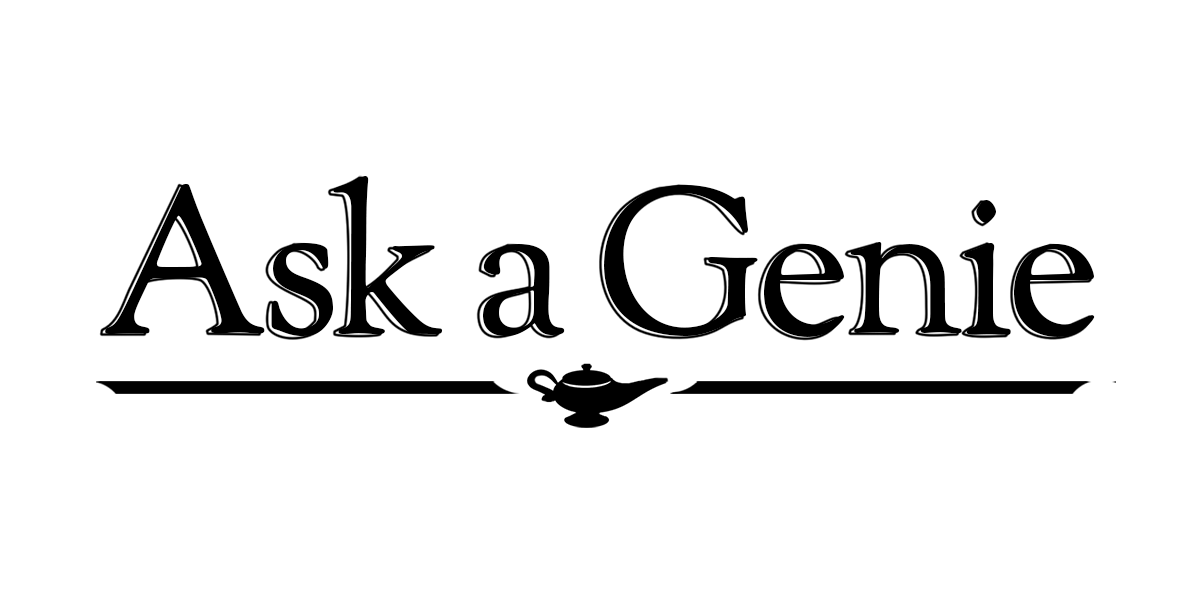You Gotta Earn It? Ask a Genie
Our genie-in-residence, on the (questionable) value of hard work and self-sufficiency.

Our genie-in-residence is here this week to cut another sprig of sage advice. Quickly, though, the solution to last week's puzzle: The chance of drawing a second blue marble is 2/3.
Now on with the show!
Dear Genie,
I loved your column about about wishing for a win. I totally agree—you gotta earn it! But that's true of everything, don't you think? I bet you get super tired of all these people asking you for a handout. What have they done to deserve it, right? The way I see it, if you want to be somebody, stop asking for stuff, and go work for it! That's my two cents.
Signed,
Worked for Everything I've Got
Dear Workshire Terrier,
Let's start with earn and deserve, words that nearly vanish under scrutiny. To say "I've earned it" or "I deserve it" must be well-defined, or else meaningless.
If I engage you to build a blimp-mounted, omnidirectional flamethrower (to cite a recent example) and you fulfill the contract, you've earned your payment. Should I fail to produce your $16,000,000 in gold bullion, and you take your case to Cartel Court, I deserve the judgement against me—a hitman, presumably. But outside of a courtroom, earn and deserve are so flexible you can twist them like balloon animals, into any shape. Have you earned a vacation? Of course you have. Do you deserve that sports car? Sure you do. One or two twists of the balloon, plus a little carnival magic, can turn any want into deserve, or any nice thing in your present possession into a boon you've earned.
I'll give more credit to the phrase, "I worked for this," though it's not very informative. You might say, for example, "Without my hard work, I could never have bought this circus." And you're probably right. Your work made the difference between owning and not owning a circus, though it doesn't explain why you have a circus, compared with some other clown. Still, "I worked for this circus" is credible, where "I earned this circus" is unprovable.
Even there, I'm obliged to remind us that everything is a gift. We thank the Big Bang for the matter in the universe, bygone stars for the useful elements, the sun for the energy of life, evolution for our humanity, and our mothers for the cells of our bodies. Our judgement might (might) be our own, but our information is inherited.
Now, dear Work-a-Day, having laid out my terms and conditions, I'll finally give you what you're looking for.
Yes. Your work matters. Your effort means something. Your achievements are real and valuable. When you behold the fruits of your creation—a sculpture, a business, a project, a child, or your first clunky try at a birdhouse—you may deservedly say, "Wowzeree, I made that!"
I'll grant you a second point, too. There aren't many genies out there. Your chance of meeting one is vanishingly small. If you want things in life, and I hope you do, you'll have to chip away at them. You mustn't wait for your ship to come in (unless you own a ship, and even then). Work is a practical necessity, even for me.
But is work a moral imperative? A responsibility? If I grant your wish, have I robbed you of your purpose?
Maybe. Or maybe not.
If you want a house for the pride of earning it, I can't help you there. If you want the satisfaction of building a house, let me spring for the lumber, and you can get cracking with a hammer. If your need is a warm, dry place to paint your paintings or sketch out your inventions, what loss is there in accepting my help, and getting on with the important stuff?





